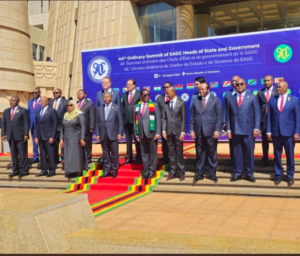CRONYISM AT THE COURT: A LOOK INTO ZIMBABWE’S JUDICIAL APPOINTMENTS

In Zimbabwe, a troubling pattern has emerged within the judiciary system. Despite the nation boasting some highly qualified judges, a subset of these appointments reflect a starkly different reality. A significant issue is that some individuals have managed to secure positions on the bench through dubious means, despite glaring deficiencies in their qualifications and ethical standings. This raises profound concerns about the integrity of judicial appointments and the overall efficacy of the judiciary in safeguarding the rule of law and human rights.
The judiciary’s role is foundational to democracy, serving not just to interpret laws but to protect individual rights and maintain the balance of power within a government. Judges ensure fair trials, develop legal jurisprudence, and enhance public trust in the legal system. Their ability to operate independently from political influences is crucial in promoting judicial independence and upholding justice. This makes the presence of unqualified judges not only a disservice to the principles of justice but a direct threat to the fabric of democratic governance.
Some of these judges had previously failed their interviews, displaying a concerning lack of competence that was later mirrored in their public performances. These dismal displays are testimonies to their mediocrity. Yet, they were sneaked in through the proverbial back door, securing their spots on the bench under dubious circumstances. This phenomenon indicates a troubling compromise on meritocracy and qualifications in favor of nepotism and patronage.
The implications of such appointments are severe. First, there is the erosion of public trust in the judiciary. When citizens observe that judges can ascend to high offices without the requisite merit or qualifications, it diminishes their confidence in the legal outcomes and the impartiality of rulings. Furthermore, the integrity of the judiciary is compromised. Judges who owe their positions to political connections rather than legal expertise are less likely to make unbiased decisions, potentially bending to the will of their patrons rather than the demands of justice.
Moreover, these underqualified judges fail to adequately resolve complex legal issues. Their lack of competence may lead to misinterpretations of the law, unjust rulings, and a failure to adapt jurisprudence to evolving societal norms and issues. This not only stunts the development of the country’s legal framework but also jeopardizes the protection of individual rights.
The presence of corruption allegations and unresolved debts among some judges further exacerbates the problem, hanging over the judiciary like the proverbial sword of Damocles. These allegations question the ability of the judges to act as impartial arbiters of the law. It underscores the necessity for a judiciary that is not only independent in theory but also in practice, free from the shackles of both financial and political influence.
To restore faith in Zimbabwe’s judicial system, a comprehensive review and reform of the judicial appointment processes are imperative. Transparency in the selection process, stringent vetting procedures, and a clear separation from political pressures are essential steps toward reform. The nation must uphold stringent standards for its judiciary to ensure that only the most qualified, competent, and ethically sound candidates are appointed to the bench.
As Zimbabwe continues to navigate through its complex political and social landscapes, the role of a fair and competent judiciary becomes ever more critical. It is paramount that steps are taken to cleanse the judiciary of mediocrity and corruption. Only through such measures can the judiciary truly fulfill its mandate to administer impartial justice, protect rights, and contribute positively to the nation’s progress.




